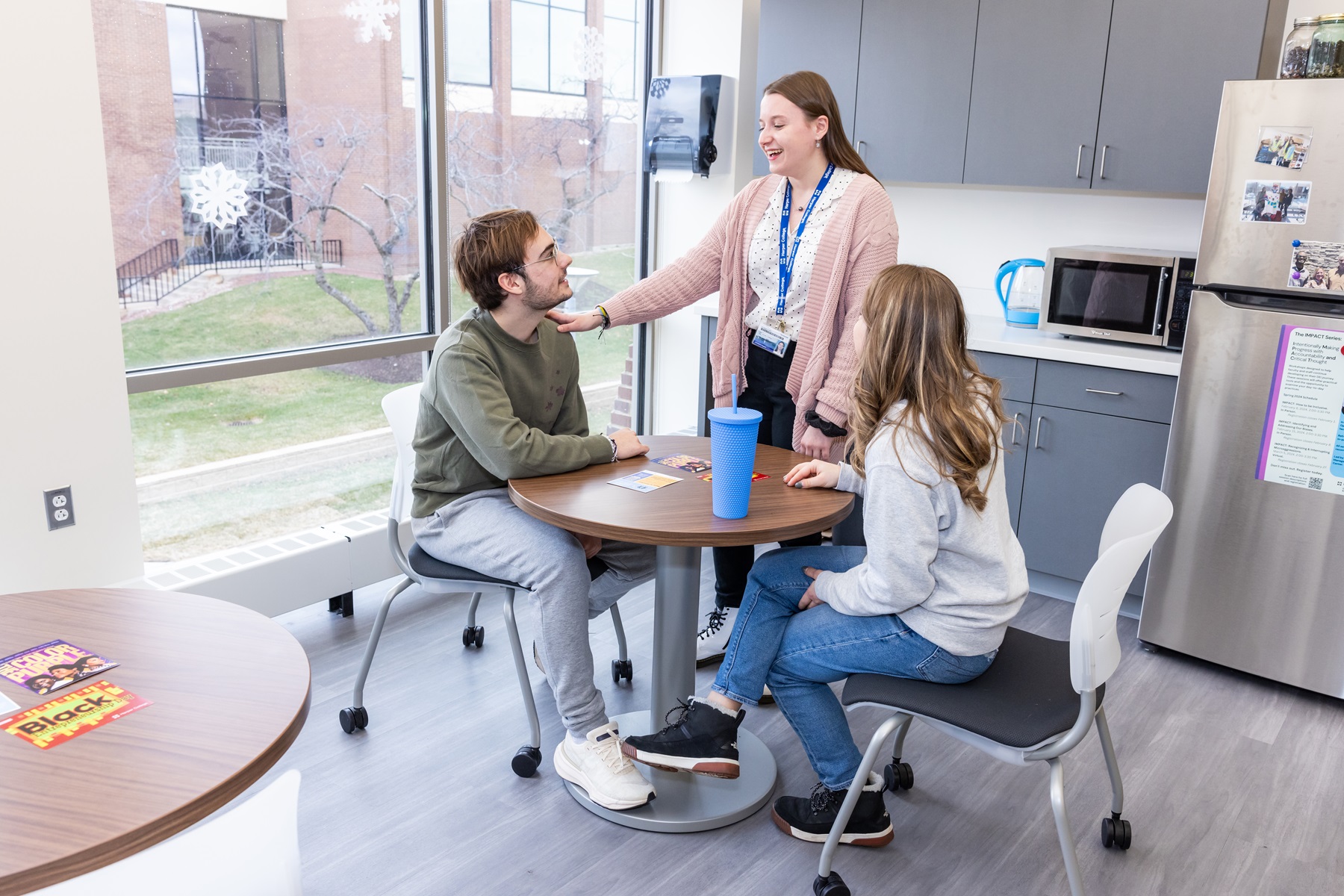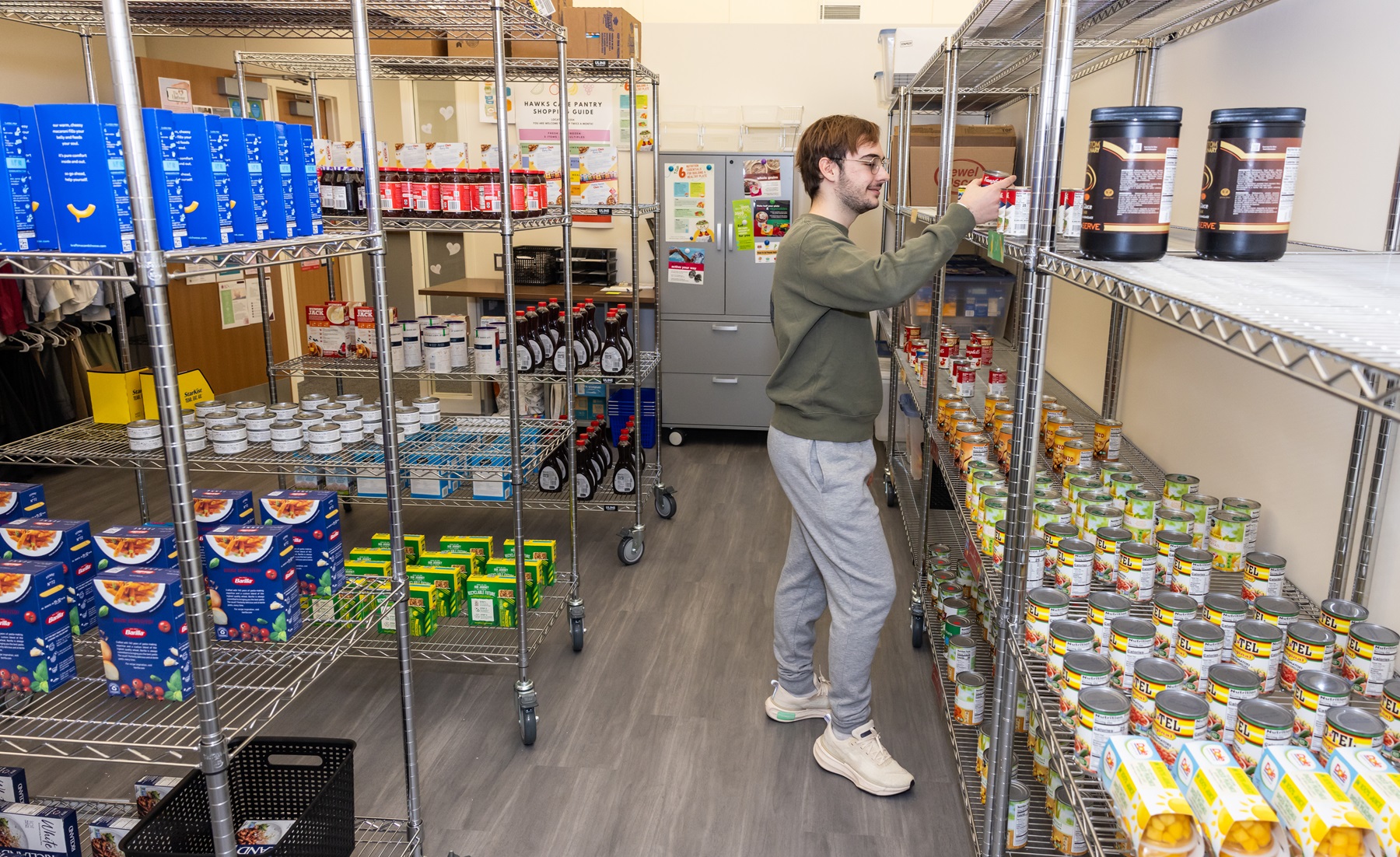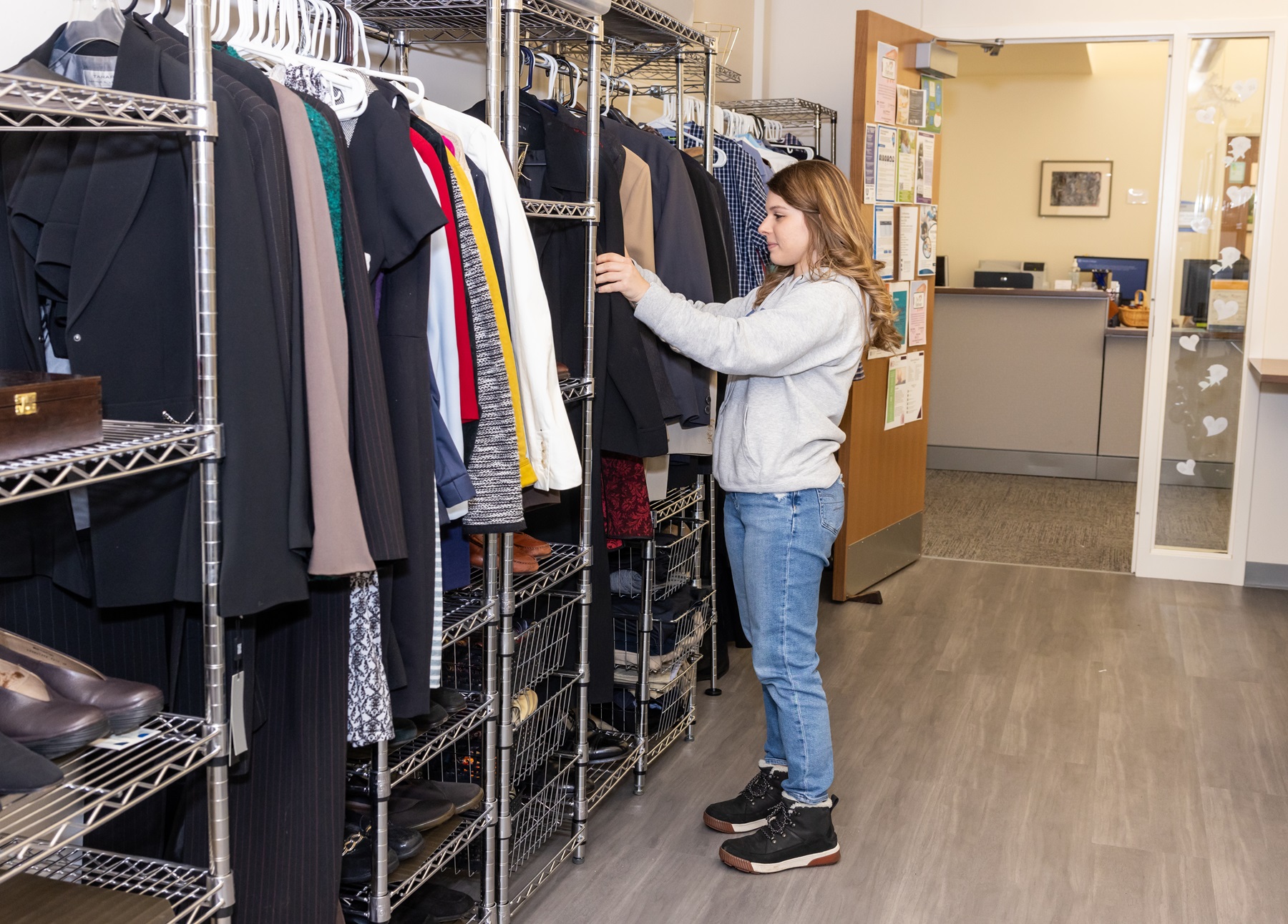Call Lifeline for emotional support
If you need someone to lean on for emotional support, call Lifeline. Talking with someone can save your life. Dial 988 or 800.273.TALK (8255).
Harper College will be closed Monday, September 1, in observance of Labor Day.

Read an updated version of this article here.
 College can be tough. There’s classwork, homework and studying for important tests.
For more than half of Harper College students, unmet basic needs can make academic
success even harder. Approximately two-thirds of Harper students worry about having
enough money to pay for school and 49% are housing insecure, according to the most
recent data from the Trellis Student Financial Wellness Survey.
College can be tough. There’s classwork, homework and studying for important tests.
For more than half of Harper College students, unmet basic needs can make academic
success even harder. Approximately two-thirds of Harper students worry about having
enough money to pay for school and 49% are housing insecure, according to the most
recent data from the Trellis Student Financial Wellness Survey.
Harper students can count on the Hawks Care Resource Center and Counseling Services team to lend a hand, and a listening ear.
Hawks Care – located in Building D, Room D204 – was founded in 2018. Staff help students manage personal challenges from housing and food insecurity to transportation and mental health.
Harper student Tina Coates says Hawks Care has been important to her success pursuing an Associate of Arts degree.
“Hawks Care’s staff listened to my concerns and gave me comfort during some very difficult times,” Coates said. “They provided that extra support I needed to make my life a little more manageable and gave me direction with some tough choices I had to make in my education. I’m so very grateful to them.”
She’s not alone. In 2023, the center connected more than 300 students with campus and community resources to help them grow academically and achieve their goals.
“I think of what we do as a web or a net,” explained Counseling Services Manager Carol Trejo Kroeger. “We create this web of services to support all our students. Even if our office can’t help, we can connect them with someone on campus or a community partner who can.”
Getting to know people and what they need is the initial step. Students first meet with a resource specialist. They talk with them about their situation – at home, work, school or wherever they’re having trouble.
A case manager follows up on academics and connections to community organizations. They may connect a student to a community health center or to on-campus help like the Financial Aid or Access and Disability Services teams for more support.
“Meeting people’s basic needs is so important for them to be successful in school,” explained Resource Center Manager Katie Schumann. “They’re trying to focus in the classroom, but they may be worried about where they’re going to sleep tonight, how they’ll get to work or where their next meal will come from.”
Hawks Care offers many services to close gaps in a student’s support web. It starts with basic personal and family needs and expands to academic and professional support services.
“Often students think they know what they’re coming to us for. Then they dig in with an appointment and they find there can be other things underneath,” Schumann said. “It’s like an iceberg.”
If you need someone to lean on for emotional support, call Lifeline. Talking with
someone can save your life. Dial 988 or 800.273.TALK (8255).Call Lifeline for emotional support
Harper College Counseling Services provide support in three main areas:
Eddie Rajczyk, a first-year student in the Surgical Technology program, said Counseling Services helped him stay on track in the classroom by addressing personal concerns.
“I was dealing with some issues that were more personal than academic,” he explained, “but I thought that if I didn’t address them, it might affect my grades.
“The counselor and I pretty much talked about anything and everything, inside and outside the classroom. Even though academics wasn’t my main reason for going to the center, I have no doubt our talks helped me de-stress a lot and helped me in the classroom.”

The Hawks Care Pantry provides food items and personal care essentials. These include grab-and-go foods and a kitchenette where students can prepare lunch and talk with center staff.
“We encourage students to shop in the pantry to get what they need at the moment, and we’re also looking to connect them with other services in the community,” explained Trejo Kroeger. “We know that if our students are experiencing food insecurity their families probably are, and we want to support them too.”
The Hawks Care Career Closet offers new and gently used work-ready clothes. Students – including those who have received a Harper credential within the past year – can shop for up to four pieces of clothing to help them prepare for job interviews, career fairs, networking events and the workplace. Students can keep the clothes.
“We want them to land the job, or nail that networking so they have a chance to use those clothes again,” Schumann said.
Hawks Care staff connect students with local groups that offer personal and family services related to child care, domestic violence, health care, housing, immigration and mental health.
“We can help you with the small lens on campus, but we also want to get you connected to the organizations in your community to give you that big picture, especially when you have dependents and a family,” Schumann said.
The John and Rita Canning Harper College Women’s Program supports women enrolled at Harper with low incomes who are single parents, non-traditional career seekers, fleeing domestic violence or are pursuing English as a Second Language (ESL) coursework. Services include education planning and financial assistance.
Hawks Care also provides loaner laptops to Harper students with financial need and no access to technology. The Harper College Lyft Pass Program offers discounted rides for most Harper College students to help them get to or from one of Harper’s campuses.

For Schumann and Trejo Kroeger, their work with the Hawks Care Resource Center and Counseling Services is all about helping Harper students.
“Everything is so personalized to the student,” Schumann said. “There isn’t a blanket formula for how to treat somebody, except that you have to get to know them. Everybody has a different story. It’s our job to help them achieve their own success.”
Trejo Kroeger agreed. “When we meet people’s basic needs, whether it’s food, housing, transportation, or mental and emotional health and wellness, we are setting them up to achieve their goals,” she said.
Need help? Contact Hawks Care for support.